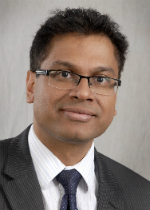Cancer expert welcomes HPV vaccine for boys but warns against limited rollout
Dr Shanmugasundaram Ramkumar, a consultant clinical oncologist at University Hospital Southampton, said the suggestion they would be protected by herd immunity from the female vaccination programme was “naive”.
The human papillomavirus (HPV) is a sexually transmitted infection linked to the majority of cervical and anal cancer cases, as well as vaginal, penile and, increasingly, oral and throat (head and neck) cancers.
Teenage girls have been offered the HPV vaccine in the UK since 2008 but, from this term, the programme will be rolled out to boys aged 12 and 13 (year eight) in England, Northern Ireland and Wales and for those aged 11 and 12 in high schools in Scotland.
Earlier this month, the Department for Health and Social Care said extending the vaccine to boys aged over 13 and young men would have only a “limited benefit” as older boys and young men were already protected by herd immunity as a result of 10 years of the girls' successful vaccination programme.
“While no-one can deny it is fantastic news the UK will be introducing a vaccination programme for boys, one must remember we are six years behind Australia in doing so and to not extend it to older teenage boys and young men is misguided,” said Dr Ramkumar, who is on the public engagement committee of the British Association of Head and Neck Oncologists.
“It is naive to suggest it would provide “limited benefit” for them as it takes time for herd immunity to develop and it needs almost a 100% uptake of HPV vaccine for girls to acquire good herd immunity.
“It relies on the fact these males will avoid having sexual partners who have HPV and it means they can get and share HPV with any females who haven’t been vaccinated.”
He also suggested that, although the best immune response from the HPV vaccine is obtained in pre-teenage children, it could still even be beneficial for men and women up to age of 45 years.
In the US, the Food and Drug Administration (FDA) has approved the use of Gardasil 9 – which protects against nine strains of HPV as opposed to four – for women and men up to the age of 45.
"As this is a safe vaccine, there has even been discussion among experts that it could be beneficial even for men and women up to 45, so we should at least be looking at covering off this group of young men who we know will benefit most.”
Dr Ramkumar, who spoke out ahead of Head and Neck Cancer Awareness Week (16 to 20 September), said the 11-year gap in vaccination programmes has had "consequences".
"Since 2008 studies have shown the rate of infection in females with some key types of the virus have fallen by 86% in those aged 16 to 21,” he said.
"A Scottish study has also showed the vaccine reduced pre-cancerous cervical disease in women by up to 71%.
"However, the incidence of HPV-related head and neck cancer has been rising over the last two decades, particularly in males who are usually young, which highlights how vaccine segregation can have consequences."
As part of Head and Neck Cancer Awareness Week, Dr Ramkumar and colleagues across the UK will be promoting the Make Sense campaign, which aims to raise awareness of head and neck cancer symptoms and subsequently promote earlier presentation, diagnosis and referral.
